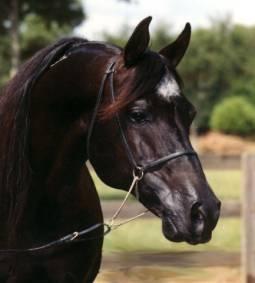I’ve been looking into the whole thing that happened in the 1980s when Arabian horses were being bred as an “investment” rather than as useful riding horses (for the most part). Then the tax laws were changed in 1986 and everybody tried to dump their horses for almost nothing. I remembered the market changing, since I boarded at an Arabian breeding farm at the time, but didn’t know the particulars.
Anyhoo, I stumbled on this interesting radio program (from 2002) where some “insiders” from the era talk about their experiences. Scroll down the page about 1/3 of the way - it’s the one called Segment 1: “Reaganomics on the Hoof: The Arabian Horse Industry in the 1980s.”
Here’s the blurb for it:
Reaganomics on the Hoof explores how something as remote and impersonal as changes in tax laws can have far reaching, and completely unforeseen, effects on obscure corners of the American cultural landscape. In the early 1980s Arabian horse breeding operations became glamorous tax shelters, and because they only qualified as tax shelters if the animals were constantly reproducing, the numbers of Arabian horses in the country skyrocketed; prices for top horses reached the millions. When the tax law changed in 1986 the industry collapsed. Horses worth tens of thousands of dollars a when they could be written off were, overnight, became walking dog food. The rich got out of the horse industry, the horse people could no longer make a living, and thousands of horses were sold by the pound. Now, more than 15 years later, the industry is just starting to show signs of recovery. Produced by Lizzie Redkey for Talking History (University at Albany).
It’s 20 minutes long, so make a cup of tea and put your feet up.

